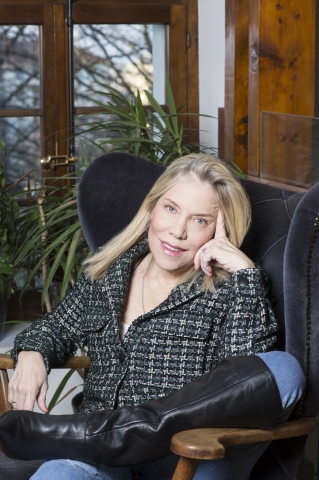The Global Period of Reflection - ZOOMSDAY Predictions by Marian Salzman
“During COVID-19 pandemic, we have slowed down enough to consider more deeply what we want in our lives—and in our world.”
The Covid-19 pandemics have transformed the ways we live, work, socialize, and move around the world. While we struggle to understand the ripple effects of the coronavirus pandemic, Marian Salzman, one of the world’s top trendspotters and Senior Vice President of Global Communications for Philip Morris International, came up with Zoomsday Predictions. It is her annual trends report, which helps us understand where the global community is heading in 2021.
We are in a different world in 2020. More divided. More skeptical. Less willing to put aside partisan ideology in service to the greater good. Our calendars have advanced, but society appears to be moving—sometimes at hyperspeed—in the opposite direction, - stated Marian Salzman.
The 11 trendsightings, delivered by the author, represent prognostications for shifts that will make their mark in the coming months. They will help to shape the next “normal” and reshape our thinking as we move into our post-pandemic future.
The global period of reflection afforded by the pandemic has given us the time and mental space to consider how we have been living—and whether it’s been worthwhile, - says Marian Salzman.
According to the author, one of the main trends in 2021 will be about revamping lifestyles and rethinking ambitions. This prediction is called Zoom In (and Out) and concentrates on the reflection process on oneself’s inner and outer world.
We will be zooming in on our personal and professional lives—tweezing out what is essential and eliminating pain points—and on our new “one places.” At the same time, we will be zooming out to consider more fully the broader community and the impact we wish to have, - states she.
This trend affects not only individual worldviews but also develops a feeling of unity. As Marian Salzman explains, the important aspect of zooming in is helping others, putting paychecks to good use, including by bolstering local businesses, and helping neighbors in need. Moreover, zooming out means going beyond one’s communities to support businesses located hundreds, even thousands of miles away.
In an era of selfies, personal branding, media bubbles, custom playlists, and entertainment-pods-for-one, COVID-19 has awakened in some of us the first inkling of community in a long while, - says Salzman.
As we move into the “new normal,” redefining what is essential is becoming a necessity. It is the 7th trendsighting. The author states that modern societies, especially the successful ones, consider it essential for their citizens to have the means not merely for survival but also to thrive. Due to inequities, societies tend to suffer from life expectancy, infant mortality, obesity, intentional homicides, teenage pregnancy, higher imprisonment rates, and political instability.
With the pandemic, the notions of surviving and thriving have taken on extra resonance. Tragically, even as we recognize existing inequities and wish to reduce them, we know they will worsen as the effects of the pandemic drive up unemployment— just as we know that climate change will disproportionately impact the poor, - says Marian Salzman.
In these drastic times, the agents of change are corporations. According to the author, to deal with this uncertainty was possible only by uniting the powers - in the early weeks of the lockdowns, large and small companies set up to produce ventilators and personal protective equipment and to support customers and communities in other ways.
There is nothing new about businesses incorporating a purpose beyond profits. But that shift has been accelerated by the pandemic. In 2021, we can expect more of the same but with a new emphasis on private-public partnerships, the likes of which we haven’t seen since GE teamed with NASA on Apollo 11, - predicts Marian Salzman.












